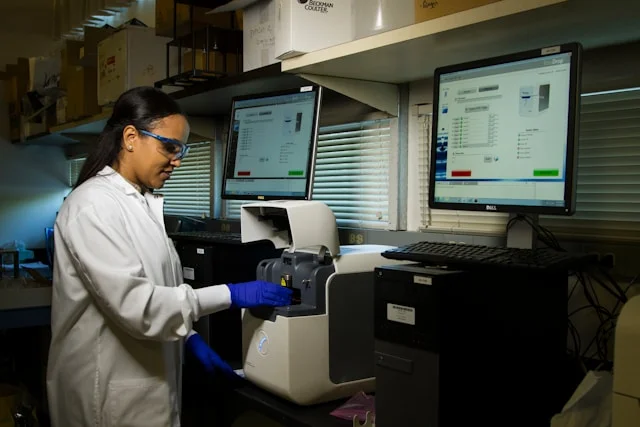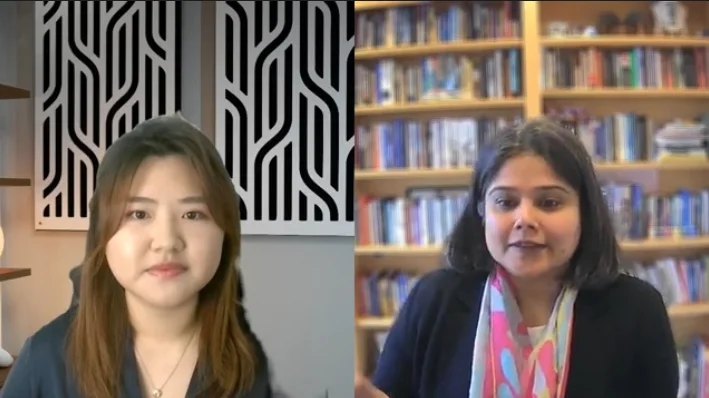What are tech clients looking for in a candidate, and how can a candidate stand out?
28 Oct, 202110 minBy Fanny Journeau, HR at MA. MA provides tech profiles to clients all around Europe and...

By Fanny Journeau, HR at MA.
MA provides tech profiles to clients all around Europe and more recently, North America and Canada.
Our areas of expertise cover both the permanent and freelancer (contract) markets. Both markets being quite different, our clients’ needs will therefore be different, too.
What are these needs, and how can candidates respond to them but also pick the right company, for a win-win?
To answer these questions, three of our experts Recruitment Consultants shared with us their insights:
- Camille Haddjeri, multi-faceted Recruitment Consultant working on Sales, Training and Client Services
- Emmanuel Robic, Team Leader of our French Contract Market
- Pierre-Alexandre Mostermans, experienced Recruitment Consultant specialised in the Perm market.
What are clients looking for in a candidate?
Our clients’ demands tend to focus on senior profiles. Depending on the type of candidates (perm or contract), the requirements will differ.
Cultural fit and tech skills for perm candidates
On the perm side, cultural fit will be very important. There is a logic of long-term professional growth within the company. One thing noticed by Pierre-Alexandre is that clients tend to dislike a long list of requirements from a candidate who will not show interest in the company itself.
Moreover, Pierre-Alexandre explains that the tech skills are obviously essential. According to the data he collected on his market (Developers in France), there are two types of ideal profiles: First, there are candidates with approximately 4 years of experience working on thought after technologies and with a strong expertise. A degree is also a good bonus. Second, there are more senior profiles who have between 5 and 10 years of practice with strong soft skills. These candidates often have a precise idea of what they are looking for.
Specific expertise, soft skills and logistic criteria for contract candidates
On the contract side, rather than cultural fit, a knowledge of a specific work environment is more relevant since clients are often recruiting for a specific project. Emmanuel explains also that soft skills are essential since we see more and more contractors being integrated to project teams, having to communicate, even sometimes, teach or train their colleagues on their expertise or on a specific process.
Broadly speaking, there are three main areas to consider: Skills, availability (in terms of location and date) and cost. Depending on the client, some areas will be favoured, for example, one might prioritise location and cost, when another will be ready to pay a candidate the amount, they ask for to make sure they have someone available. It is also interesting to bear in mind that in the health crisis context, the location aspect is not as important as it used to be, since many companies are now ready to consider remote working.
How can candidates showcase their skills during a recruitment process?
Show a good prep and curiosity for perm recruitment
In perm, the ability to show technical knowledge as well as curiosity is important: this means researching the use of a technology and the reason for using it. Talking about concrete examples allows to give substance to the talk.
Pierre-Alexandre advises candidates to follow the following structure when presenting an experience: present context, the task required, the action put in place, and finish by the result it had. Mentioning potential personal projects is a bonus.
Then, preparing the interview by looking for information on the company and their current projects is always appreciated. This shows the interest of the candidate on the role and allows both the candidate and the client to envision a work relationship.
Show interest in the company, as well as some flexibility
In contract, a lot of candidates mainly demonstrate skills and tend to not focus on the company. To stand out, candidates can show interest by asking questions on the project or on the technologies that are used. Broadly speaking, freelancers can sell themselves by showing good listening skills since it will give them indication on what attitude is expected from them. Additionally, it will allow them to answer questions straight to the point, which shows that they understand what is necessary in the role. According to Emmanuel, a good tool is to allow silences and time to think to provide an exhaustive answer with concrete example to illustrate the speech.
Then in terms of cost and availability, Emmanuel identified that being flexible can always help. A lot of freelancers coming from permanent jobs are asking for a rate similar to what they used to know, which is not always relevant. A good search on what is currently being done on the market is better. On the availability side, clients are often looking for people to start working quickly. To make things easier, a candidate could for example offer to move forward his availability date while only working a few days a week. This can be a solution between a candidate’s and clients’ needs.
How can candidates flourish?
As mentioned before, cultural fit is quite important in the perm market. Therefore, our team is advising candidates to choose opportunities in work environment that meet their expectations. On the one hand, one might prefer to work for large companies with strong structure and established work procedures. On the other hand, another person would thrive in a start-up type of companies where initiatives and adaptation are paramount. It is important for candidates to identify what they like in order to find a right fit. Moreover, Pierre-Alexandre advises candidates to work as part of a team whenever possible, in order to challenge their tech skills and quickly get better. For a junior person, reaching out to the community and launching personal projects can be a great tool.
On the contract side, people are often already experts in a specific area which reduces the scope for change. So, to develop new skills, side projects or continuous learning through certificates and training are a great option too.
To conclude, clients and candidates needs can be very context-specific, but some guidelines will always be the same. In a constantly evolving market like the tech market, it is essential to stay up to date and stand out from an ever-growing demand for expert skills.



